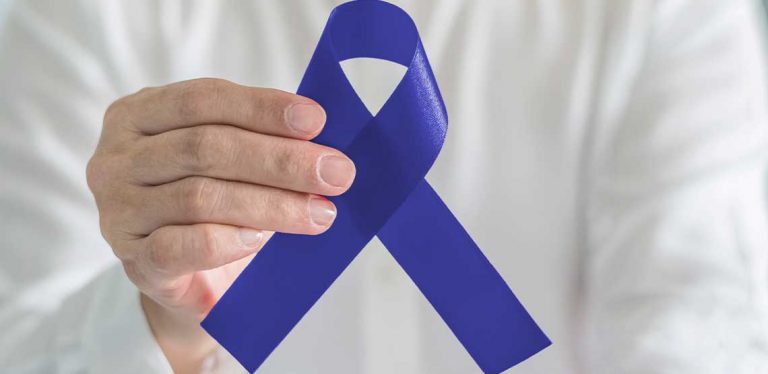Huntington's Disease Treatment
Huntington’s chorea or disease is a rare neurodegenerative disease caused by death (degeneration) or loss of function of neuron cells (brain cells) in different parts of the brain. This disease was described and reported in 1872 by American physician George Huntington. Here we will take a look at symptoms, causes, and Huntington’s disease treatment.
Huntington’s disease is inheritable as it is passed down from parents, affecting both men and women. Huntington’s disease (HD) usually starts in adulthood around the ages of 30 to 50 years of age, but it can also begin earlier.
The estimated prevalence of HD is up to 5.5 people out of 100,000 worldwide. In people of European descent, HD occurs in 3 to 7 people per 100,000. There are more than 30,000 Americans reported living with HD. People diagnosed with HD typically have a life expectancy of 15 to 20 years after the disease's onset. Sadly, about 9% of people with HD lose their life to suicide.
What Causes Huntington’s Disease?
Huntington’s disease is inheritable, meaning a person affected by HD usually inherits the affected gene from an affected parent. The gene responsible for Huntington’s disease is the Huntingtin (HTT) gene. The exact role or function of the HTT gene is unknown. However, the HTT gene is believed to play an important role in brain cell development in the fetus. It’s responsible for chemicals signaling and protecting cells from apoptosis (self-destruction). Some studies have also shown that the HTT gene may also help in repairing damaged DNA.
One region of this gene is a DNA segment made up of DNA building blocks called the CAG trinucleotide repeat. In an average person, this segment is repeated 10 to 35 times in the gene. In Huntington's disease, the HTT gene mutates, referred to as the CAG trinucleotide repeat expansion. People with Huntington's disease have more than 36 to 120 CAG repeats. People with 27 to 35 CAG repeats on the HTT gene do not develop Huntington’s disease. However, their children are at higher risk of developing it. As the gene expands, the more it is passed on from generation to generation.
The HTT gene is found in many tissues in the body but is most present in the brain. This HTT gene provides instructions to make the Huntington protein. Small toxic fragments of the HTT protein accumulates and binds together in neurons. This interrupts the normal functions of neurons and leads to dysfunction. Over time this can also lead to neuronal death in some parts of the brain, which causes the signs and symptoms seen in Huntington's disease.
What Are the Symptoms of Huntington's Disease?
Huntington's disease is identified by different motor, cognitive, and psychiatric symptoms. The early signs and symptoms of Huntington's disease are:
- Depression
- Irritability/aggression
- Anxiety
- Compulsive behavior
- Trouble making decisions
- Chorea (small involuntary jerky movements)
- Subtle changes in personality
- Issues with cognition
- Mood swings
- Lack of coordination
- Restlessness
In almost half of the cases of HD, the psychiatric symptoms are first to appear. This is characterized by personality changes and a decline in cognitive abilities such as thinking and reasoning. In many people with HD, this is followed by motor symptoms, mainly chorea. Chorea is characterized by small, involuntary, irregular, unpredictable muscle movements and restlessness. Over time, the symptoms may worsen into trouble speaking, swallowing, and walking and may even decline into dementia.
Related Search Topics (Ads)
There is a less common form of Huntington's disease, which can begin in childhood, called juvenile onset Huntington's. This form of HD is distinguished by mental and emotional changes and impaired thinking and reasoning. There are also problems with movements, such as slowed movement, frequent falls, slurred speech, drooling, clumsiness, and rigidity. Affected children also present with seizures. This type of HD progresses much faster than the adult-onset form with more cognitive decline. These individuals have a life expectancy of 10 to 15 years.
Huntington's disease can lead to heart disease or failure, injury from falls, or pneumonia, leading to an even more reduced life expectancy.
Huntington's Disease Treatment Plans
There is no cure for Huntington's disease. However, there are options to manage it with treatments that can reduce the severity of symptoms.
Medication
Tetrabenazine is an approved treatment for chorea seen in Huntington's disease. Benzodiazepines and antipsychotics can also be used to reduce chorea. The parkinsonian symptoms seen in many juvenile HD cases are treatable with anti-parkinsonian medication such as Carbidopa-Levodopa drugs (i.e., Sinemet. Deutetrabenazine is another recently FDA-approved medication for chorea in HD).
Psychotic symptoms can be treated by medications such as selective serotonin reuptake inhibitors for depression and atypical antipsychotics for psychosis.
Therapy
Some people with HD might make use of non-invasive physical therapy to help manage physical symptoms. The physical therapist can work with the HD-affected person to reduce falls, strengthen and stretch muscles, and help with breathing and cardiovascular exercises.
When Do You Need to See a Doctor?
You should see a doctor if you start experiencing small and uncontrollable jerky movements that happen excessively and randomly during the day. This is especially relevant if you are in your 30s or 40s. A doctor will most likely conduct a physical and psychological examination to assess whether the disease onset has begun.
Usually, when a person does not have a family history of HD, genetic testing is done to confirm a diagnosis.

